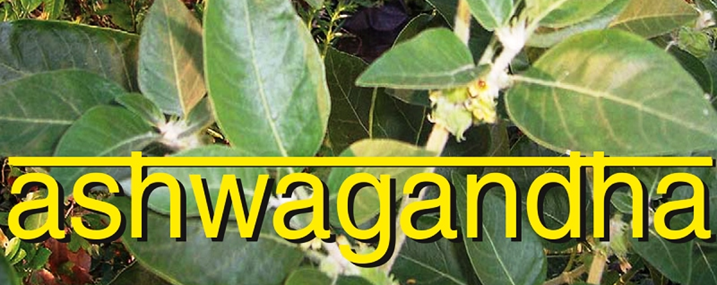INTRODUCTION
Ashwagandha also known as Withania somnifera, Winter cherry, or Indian Ginseng. Ashwagandha, one of the most valuable herbs in the Ayurvedic medical system dating back more than 3,000 years. Because of its vast area of application, ayurvedic physicians have used it extensively in curing people from their ailments.
Ashwagandha, improves the body-ability to maintain physical effort and helps the body adapt to various types of stress. Ashwagandha is a rejuvenative that helps maintain proper nourishment of the tissues, particularly muscle and bone, while supporting the proper function of the adrenals and reproductive system. The medicinal part of this herb is the root, and the shoots and seeds are used as food and to thicken milk.
Cultivation
Withania somnifera is cultivated in many of the drier regions of India. It is also found in Nepal, Sri Lanka, China, and Yemen. It prefers dry stony soil with sun to partial shade. To propagate it can be grown from seed in the early spring, or from greenwood cuttings in the later spring.
| We offer following ashwagandha grades |
|---|
| Withanolides 1.5% to 10% standardized by HPLC |
| Alkaloids more than 2% |
| Withanolides 2.5% to 20% by Gravymetric |
| Withaferin not more than 0.1% |
Applications of root extract offered by ExSyn
(1) Dietary Supplements & Sports Nutritions:
| Helps to promote muscle strength, size & recovery |
| Helps to promote sexual function in men and women |
| Joint health |
| Anti-ageing |
| Cardiac support |
| Brain health |
| Anti-anxiety |
(2) Food & Beverages
Ashwagandha offered by us can be easily blended to a range of food products, thus providing you food enriched with the wellness properties of ashwagandha.
| It can easily be added to |
|---|
| Dairy products |
| Nutritional bars |
| Confectionaries |
| Beverages such as Tea / Green Tea / Coffee / Energy drinks |
| Juices and Fruit blends |
SPECIFICATIONS – Withania Somnifera 5% dry extract
| Test | Unit | Specification |
|---|---|---|
| Physicochemical Tests | ||
| Plant part used for extraction | – | Root |
| Herbs ratio | – | 30-35 : 1 |
| Description | – | Yellowish brown colored hygroscopic powder |
| Water soluble extractive value | % w/w | NLT 60.0 |
| pH of 1% aqueous solution | – | NLT 4.0 |
| Loss on drying at 105°C | % w/w | NMT 6.0 |
| Ash content | % w/w | NMT 10.0 |
| Sieve Analysis pass through 80 mesh | % w/w | NLT 90.0 |
| Assay | ||
| Total Withanolides content | % w/w | NLT 5.0 |
| Total heavy metals | ppm | NMT 10.0 |
| Arsenic | ppm | NMT 1.0 |
| Lead | ppm | NMT 3.0 |
| Mercury | ppm | NMT 0.1 |
| Cadmium | ppm | NMT 1.0 |
| Microbiological analysis | ||
| Total plate count | cfu/gm | NMT 10,000 |
| Yeast & Mould | cfu/gm | NMT 100 |
| Salmonella | – | Absent |
| Escherichia coli | – | Absent |
| Staphylococcus aureus | – | Absent |
| Pseudomonasaeruginosa | – | Absent |
STORAGE
Store in cool & dark place.
PACKING
25 kg drum.
REGISTRATION / CERTIFICATION
ISO, FSSAI, HALAL, KOSHER, GMP & US-DMF.
No matter the quantity you need, our exceptional quality and service will make ExSyn your supplier of choice! If you need any additional information or SDS, please contact us.
Iodine is anon-metallic, dark-grey/purple-black, lustrous, solid element. It is the heaviest and the rarest of stable halogens that can be found on the crust of earth.About fifty percent of all iodine produced and manufactured worldwide is used to form Organoiodine compounds. Iodine is an important element for many health-sustaining processes and essential for human thyroid health.
The product, acronymed Oct-NBE, is an organic compound with a cyclic ring system and a 8-membered hydrophobic chain. The structure renders the chemical special properties leading to its applications in diverse fields.
Nicotine is a hygroscopic, colorless to slight yellow, oily liquid, that is readily soluble in alcohol, ether or light petroleum. It is widely used recreationally as a stimulant and anxiolytic.
The product, acronymed ETD, is an organic compound with a fused bicyclic ring system and an ethylidene group. The structure renders the chemical special properties leading to its applications in diverse fields.
Sodium perchlorate monohydrate is the inorganic compound with the chemical formula NaClO4•H2O. It is the common existence form of sodium perchlorate, which can gradually absorb water in the air to form the monohydrate. Sodium perchlorate monohydrate is white rhombic crystal which is highly soluble in water and in alcohol. Its capacity to undergo redox reactions, liberating oxygen atoms, has been harnessed in the preparation of specialty chemicals, including pharmaceutical intermediates and fine chemicals.
Triphenylphosphine is a common organophosphorus compound that is frequently abbreviated as PPh3 or Ph3P. It is widely used in organic and organometallic compound synthesis because it is an effective reducing agent as well as a neutral ligand. At room temperature, PPh3 crystals are relatively air-stable and colourless.
Potassium chlorate holds significant importance across various industries due to its diverse applications. This white crystalline compound has been utilized for centuries as an essential ingredient in the production of matches, fireworks, and explosives, owing to its ability to release oxygen upon decomposition.
Podophyllotoxin is a non-alkaloid toxin lignan extracted from the roots and rhizomes of Podophyllum species. It is an organic heterotetracyclic compound that has a Furonaphthodioxole skeleton bearing a 3,4,5-trimethoxyphenyl substituent.
Octadecylphosphonic acid (ODPA), a versatile chemical compound, serves as a surfactant and dispersant in applications spanning coatings, lubricants, and corrosion inhibition. With its hydrophobic octadecyl chain linked to a phosphonic acid group, it excels in surface modification, boosting adhesion in metal surfaces.
